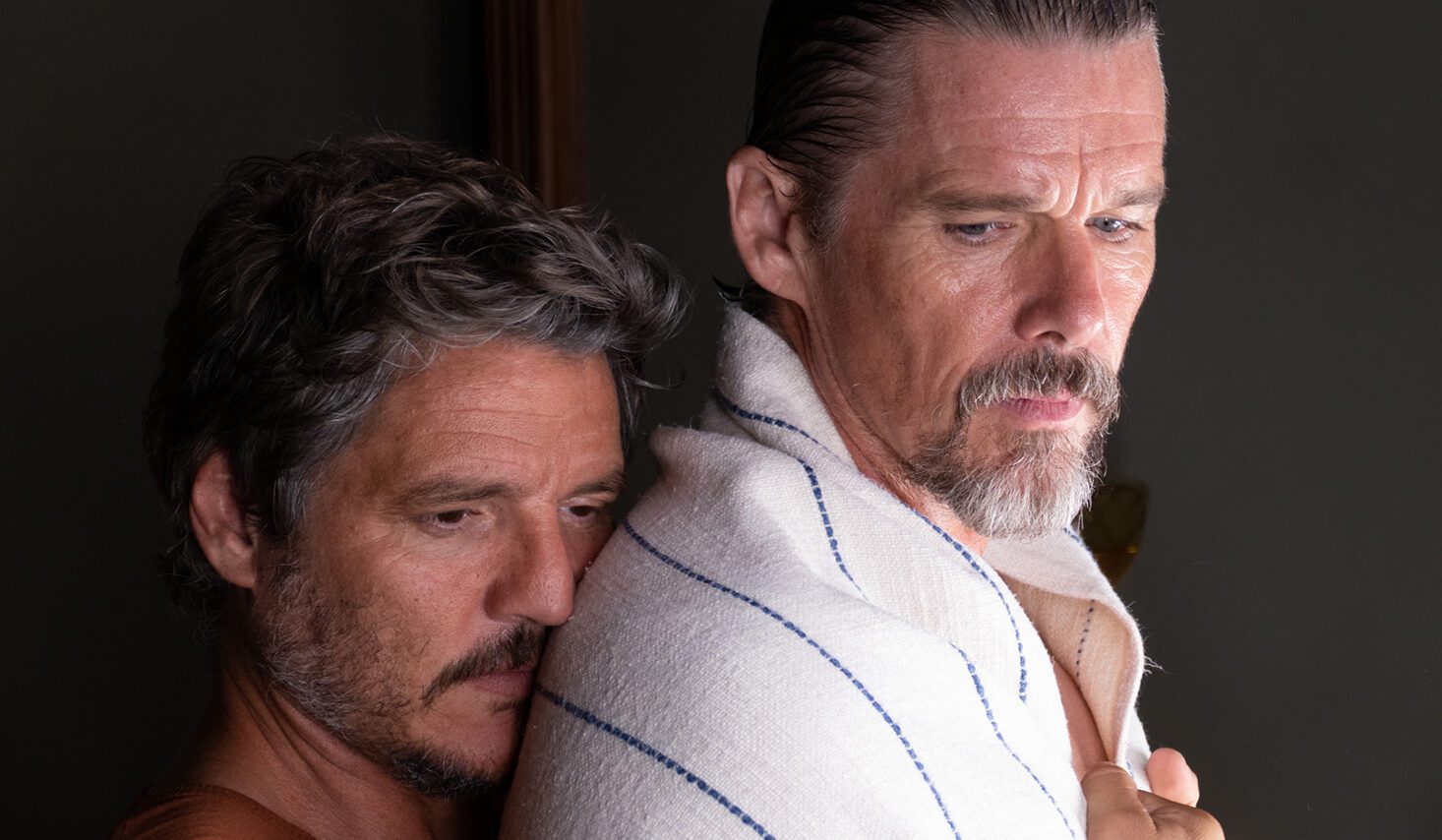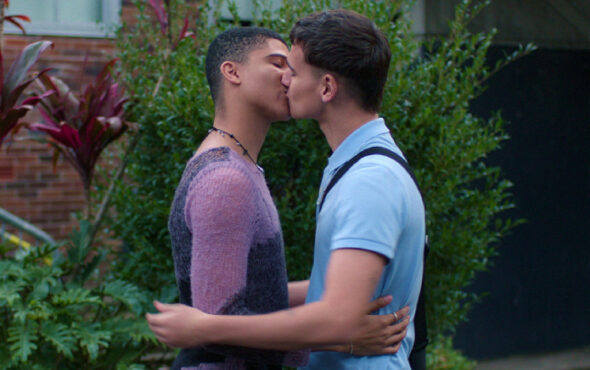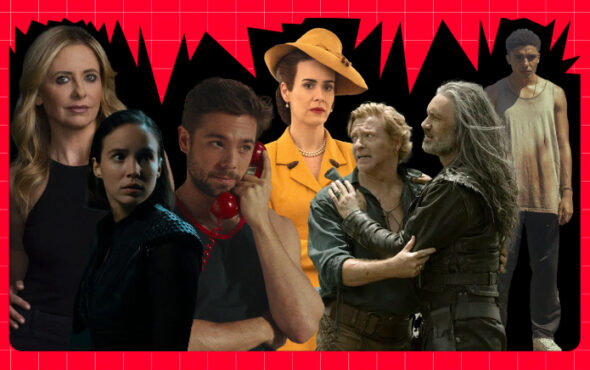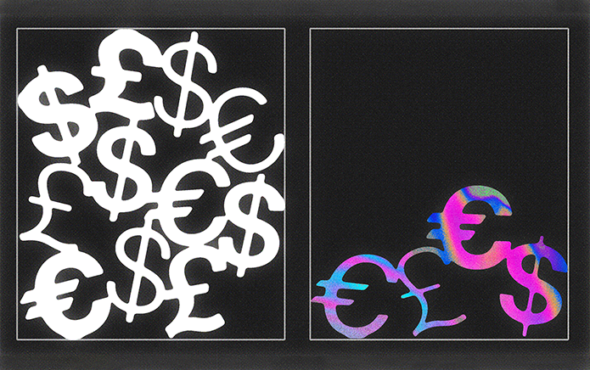
In the early 2000s Pedro Almodóvar turned down the opportunity to direct Brokeback Mountain, the groundbreaking gay romance starring Jake Gyllenhaal and Heath Ledger. 20 years later the Spanish filmmaker has returned to present what he describes as his “answer” to Brokeback Mountain, with the sexy, passionate Strange Way of Life – now streaming on MUBI as part of their new season, Neo-Westerns: A New Frontier.
In its golden age, the Western was a genre dominated by men. Male characters were often portrayed as lonely nomads, taciturn cowboys skulking around the fringes of society. Women were confined to saloons or wife roles. People of colour were virtually nonexistent. Any trace of queerness was always implicit, the smallest crumbs being moments like Red River’s Montgomery Clift and John Ireland comparing the size of their, uh, pistols. In this era, the idea of ‘lawlessness’ has often dominated cultural depictions of the ‘Wild’ West – that it was all exhilarating gunfights and freewheeling debauchery – but this obscures the period’s colonial foundations of respectable society versus so-called ‘savagery’.
What’s always been so alluring about the Western is that it is both deeply recognisable yet completely alien. The baked-in social attitudes towards women, LGBTQIA+ folks and people of colour are tiringly familiar but the barren, unforgiving landscape of cacti, gullies, shootouts and cattle ranches feels like the stuff of kid’s fiction. Yet that desolate space has always offered an incredible canvas for filmmakers to make their mark and reinvent the genre as we know it.
With Strange Way of Life, his second English-language short film, Pedro Almodóvar is the latest director to challenge the dusty traditions of the Western genre. Here, one of the most celebrated gay filmmakers working today has taken all the familiar iconography of the genre – the lone horse-riding cowboy, the sheriff, the saloon, the climactic gunfight – and injected them with his uniquely Almodóvarian queer sensibility. Boasting two extremely handsome leads in Ethan Hawke and Internet sweetheart Pedro Pascal, Almodóvar has made a Western for 2023, from Saint Laurent’s equally handsome, meticulously crafted costuming, to the smallest details, like a landscape painting by feminist artist Georgia O’Keeffe hanging above Silva’s bed or a brief cameo by fashion darling and Elite star Manu Rios. This is a fresh kind of Western, joining a host of similarly daring new takes on the genre on MUBI.
The queerness laced through Strange Way of Life is simply one way of modernising the Western, as MUBI have collated a collection of bold, revolutionary neo-Westerns that upend the genre as we know it and imagine other pasts and futures for it. But the Western is a genre that has always undergone significant change. The era of the Old West was quite literally a period of extraordinary national, social and economic upheaval. ‘Neo-Westerns: A New Frontier’ explores the ways in which filmmakers from around the globe have shifted the Western to more contemporary settings, showing what happens when the genre’s baked-in hierarchies are disrupted by modernity.
Neo-Westerns show that, among other things, the genre isn’t strictly confined to America – it’s expanded all around the world. In Valeska Grisebach’s knowingly-titled Western, the Bulgarian countryside becomes as dangerous and volatile as Arizona and New Mexico as a feud builds between local villagers and invading workmen. Grisebach extracts the essential tension at the heart of the Western and transposes it to an eastern European setting. In a similar vein, Kim Jee-woon’s The Good, the Bad, the Weird takes inspiration from the spaghetti Western – namely, Sergio Leone’s iconic The Good, the Bad and the Ugly – and casts 1930s Manchuria, itself a colonised state akin to the settler colonialism of the Old West, as the site of train robberies and Mexican standoffs.
In Kleber Mendonça Filho and Juliano Dornelles’ Bacurau, a rural village experiences extreme sociopolitical turmoil in postcolonial Brazil, and directors Mendonça and Dornelles specifically channel Italian Westerns of the 1960s and ‘70s to create a thrilling, satiric mash-up of genres. And in South Africa, Flatland – directed by Jenna Bass, the co-writer of Wanuri Kahiu’s queer love story Rafiki – addresses the historic sidelining of women within the Western genre, following two women as they flee, Thelma and Louise-style, from brutish male violence.
Back in the States, in First Cow, auteur Kelly Reichardt crafts a moving tale of friendship between two men, an American chef and a Chinese immigrant, in the 1800s exposing the era’s flawed promise of the American Dream and spotlighting the hazardous immigrant experience. Reichardt disrupts the era’s defining notions of greed and offers a parable on the perils of capitalism at a time when Western expansionism was in its infancy.
MUBI’s ‘Neo-Westerns: A New Frontier’ season shows that the capacities of the Western are limitless because it’s a genre capable of endless reinvention. It’s a medium that can reinvent itself ad infinitum, not just in one corner of the U.S. but across the world by filmmakers of all nationalities. With Pedro Almodóvar as the latest director to put his stamp on the Western, it’s clear that the future for the Western is bright indeed.
Watch Strange Way of Life as part of MUBI’s Neo-Western season with 30 days free.


